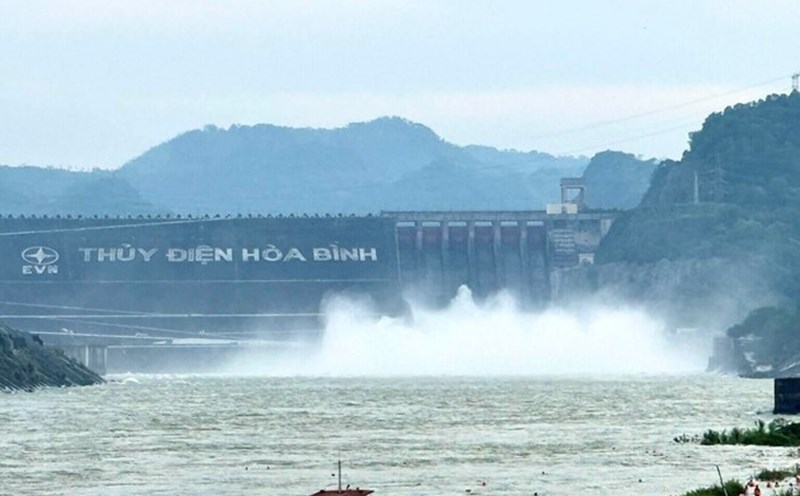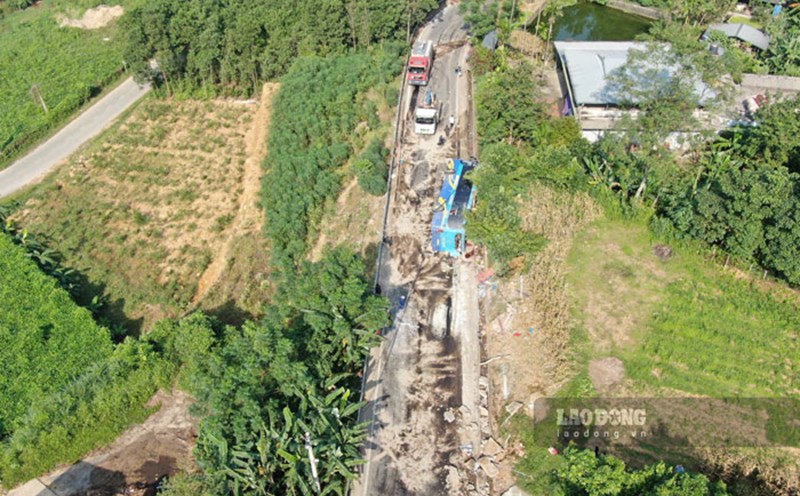Infection after floods, imminent risk if subjective
After storms, the living environment is seriously polluted by floodwaters, waste, animal carcasses, clogged drainage systems... This is the ideal condition for bacteria, viruses and parasites to thrive.
Dr. Truong Anh Thu - Head of the Department of Infection Control, Bach Mai Hospital - said that common diseases during and after storms and floods include respiratory diseases such as pneumonia, flu, digestive diseases such as diarrhea, hepatitis, cholera - caused by eating contaminated food or water sources, skin infections, tetanus - from wounds exposed to mud, dirty water, animal-carried diseases such as dengue fever, malaria, rat disease. In addition, mold and food pollution - occurs when a long-term flooded area damages food and medical supplies.
If infection is controlled early and properly, we can prevent epidemics and protect people's safety in the context of natural disasters. After natural disasters, just a source of dirty water or open wound that is not treated properly can lead to an outbreak of the disease" - Dr. Truong Anh Thu warned.
The "golden" principle in controlling infections during the storm and flood season
According to Dr. Truong Anh Thu, to minimize the risk of infection, it is necessary to follow simple - easy-to-do principles - be timely, while flexibly adapting to all situations, even when there is a lack of electricity and water. When receiving patients from flood-affected areas, medical facilities must immediately screen for cases of fever, cough, rash, diarrhea or open wound; arrange separate isolation areas. Medical staff need to use all personal protective equipment and get tetanus vaccinated when necessary.
Just a small action but great results. Wash your hands with soap when there is clean water, or use an alcohol-containing antibacterial solution if there is no water" - Dr. Thu emphasized.
In addition, the drink water must be boiled for at least 1 minute or disinfected with a clo solution (1/8 teaspoons of bleach contains 5.25% sodium hypochlorite per 3.8 liters of water). Store dry, sealed food; remove damaged or left at room temperature for more than 2 hours. People with infectious diseases are not allowed to prepare or serve food. Prioritize flooded areas, disinfect with diluted Clone (0.1% - 0.5%), treat mold, waste and stagnant water. Equip gloves, boots, and masks when cleaning. If you are injured, you should immediately wash the wound and get vaccinated against tetanus. Monitor daily unusual signs such as fever, rash, diarrhea, skin infections... to detect early the risk of disease.
"When the water recedes, the general cleaning and comprehensive disinfection of residential areas, hospitals, and schools is a step that cannot be ignored. It is necessary to clean and disinfect floors, walls, and items; treat mold, check the ventilation system and water source. Public health is not only protected by medicine but by the awareness of proactive hygiene and disease prevention of each person - Dr. Truong Anh Thu emphasized.









